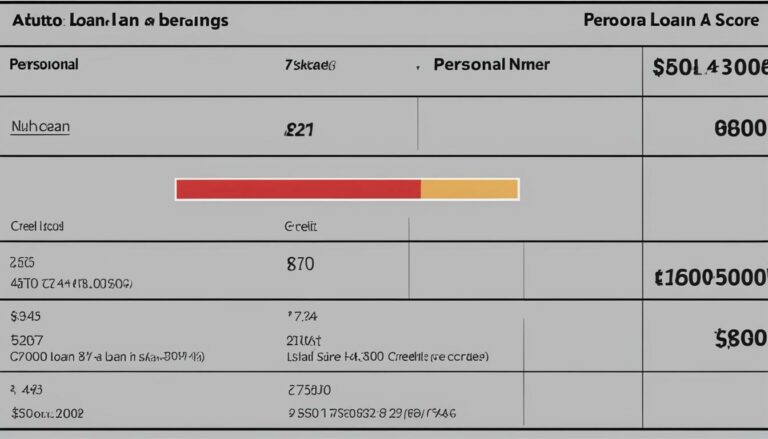Understanding Credit Scores and Implications for Immigrants

Credit scores play a crucial role in the financial lives of individuals, and for immigrants in the United States, understanding their implications is essential. New immigrants face unique challenges when it comes to building a credit score from scratch, as their credit history from other countries typically does not transfer over. This lack of credit history can make it difficult for immigrants to access loans, credit cards, and rental agreements, limiting their financial opportunities.
- Immigrants face challenges in building credit history in the United States due to the lack of transferable credit history from other countries.
- Strategic steps, such as applying for credit cards through banks that operate in both the immigrant’s home country and the U.S., or using secured credit cards, can help immigrants establish credit.
- Becoming an authorized user on someone else’s credit card can also be a valuable strategy for building credit history as an immigrant.
- Credit-builder loans, rent payment reporting, and services like Nova Credit can assist immigrants in establishing credit in the U.S.
- Responsible credit management, including paying bills on time, keeping credit card balances low, and avoiding excessive applications for new credit, is essential for improving credit scores.
Challenges Faced by Immigrants in Building Credit History
New immigrants to the United States often encounter significant challenges when it comes to building credit history, which can hinder their financial opportunities. One of the main obstacles is the fact that their credit history from other countries typically does not transfer over, leaving them with no established credit in the U.S. This lack of credit history makes it difficult for immigrants to get approved for loans, credit cards, and even rental agreements, as these financial institutions heavily rely on credit scores to assess creditworthiness.
The limitations faced by immigrants in building credit history can be especially prevalent within immigrant communities, where access to credit and financial opportunities may already be limited. Without a U.S.-based credit report, immigrants may find themselves facing higher interest rates and lower credit limits, which can further hinder their financial growth and stability.
To overcome these challenges, immigrants must find alternative methods to establish credit in the absence of a U.S.-based credit report. This can be achieved through a combination of strategic steps and utilizing resources specifically designed to assist immigrants in building credit. Some options include applying for a credit card through banks that operate in both the immigrant’s home country and the U.S., as well as using secured credit cards that require an upfront cash deposit. Another effective strategy is to become an authorized user on someone else’s credit card, as this can help build credit history.

In recent years, there have also been innovative services that cater to the needs of immigrants in establishing credit. Credit-builder loans, for example, provide a way for immigrants to borrow money specifically for the purpose of building credit. These loans are structured to help individuals establish positive payment history, which is a crucial factor in determining creditworthiness. Additionally, rent payment reporting services have emerged, allowing immigrants to report their rent payments to credit bureaus, further contributing to the establishment of a credit history.
🚨 TUIC Errors + Low Credit Score?
CreditScoreIQ helps you build credit faster by reporting utility bills to all 3 bureaus—while you dispute errors.
Start Building Credit Today →| Key Points | Strategies |
|---|---|
| Apply for credit cards through banks operating in both countries | or Use secured credit cards |
| Become an authorized user on someone else’s credit card | or Take advantage of credit-builder loans |
| Report rent payments to credit bureaus | or Explore services like Nova Credit |
It is important for immigrants to understand the significance of responsible credit management as they build and maintain their credit. This includes paying bills on time, keeping credit card balances low, and avoiding excessive applications for new credit. By taking these strategic steps and actively managing their credit accounts, immigrants can improve their credit scores and increase their financial opportunities within the United States.
Strategies to Build Credit as an Immigrant
Despite the challenges, there are strategic steps that immigrants can take to build credit in the United States and gain access to financial opportunities. Building credit as an immigrant requires patience and understanding of the available options. One effective strategy is to apply for a credit card through a bank that operates in both the immigrant’s home country and the U.S. This allows immigrants to leverage their existing relationship with the bank and establish credit history in the United States.
Another option is to consider secured credit cards, which require an upfront cash deposit as collateral. These cards are easier to qualify for and can help individuals with limited or no credit history start building a positive credit profile. The cash deposit acts as security for the credit card issuer and reduces the risk, making it a viable option for immigrants looking to establish credit.
| Option | Description |
|---|---|
| Credit Cards with International Presence | Apply through a bank that operates in both the immigrant’s home country and the U.S. |
| Secured Credit Cards | Requires an upfront cash deposit as collateral. |
Becoming an authorized user on someone else’s credit card can also be beneficial. This allows immigrants to piggyback on the established credit history of the primary cardholder. However, it is crucial to choose a responsible cardholder who consistently pays their bills on time and maintains low credit utilization.
By becoming an authorized user on someone else’s credit card, you can start building credit history even if you don’t have a credit card in your own name. Just make sure the primary cardholder manages their credit responsibly.
Furthermore, credit-builder loans are an excellent option for immigrants looking to establish credit. These loans are specifically designed to help individuals build credit by making small monthly payments. As the loan is repaid, positive payment history is reported to the credit bureaus, improving the credit profile over time.
- Apply for credit cards with international presence.
- Consider secured credit cards with an upfront cash deposit.
- Become an authorized user on someone else’s credit card with a responsible cardholder.
- Explore credit-builder loans to establish a positive credit history.
Lastly, innovative services like Nova Credit can assist immigrants in establishing credit in the U.S. Nova Credit enables individuals to import their international credit history and use it to demonstrate creditworthiness to U.S. lenders. This can be particularly beneficial for immigrants who have a strong credit history in their home country but struggle to access credit in the United States due to a lack of U.S.-based credit reports.

With these strategies and resources, immigrants can take proactive steps towards building credit in the United States, unlocking financial opportunities, and achieving long-term financial stability.
Responsible Credit Management for Immigrants
To enhance their financial inclusion and creditworthiness, immigrants must adopt responsible credit management practices. Building credit as an immigrant can be challenging, but by following these strategic steps and practicing responsible financial habits, you can improve your credit score and gain access to better financial opportunities.
- Pay bills on time: Timely payments are crucial in establishing and maintaining good credit. Set reminders or automate payments to ensure you never miss a due date.
- Keep credit card balances low: Aim to keep your credit utilization ratio below 30%. This means using no more than 30% of your available credit limit. High balances can negatively impact your credit score.
- Avoid excessive credit applications: Applying for multiple credit cards or loans within a short period can raise red flags to lenders. Only apply for credit when needed and space out your applications to minimize the impact on your credit.

“Responsible credit management not only helps immigrants improve their creditworthiness but also enhances their overall financial inclusion, providing access to better loans, credit cards, and rental agreements.”
While these practices are essential, it’s important to note that building credit as an immigrant may take time. Be patient, and continue to make responsible financial decisions. Your credit history will gradually improve, and you’ll be on your way to achieving financial stability in the United States.
Additional Resources for Immigrants
It can be overwhelming to navigate the world of credit as an immigrant. Fortunately, there are resources available to assist you in building credit and accessing financial services. Explore the following options:
| Resource | Description |
|---|---|
| Credit-Builder Loans | These loans are specifically designed to help individuals establish or rebuild credit. They often have lower interest rates and can be a valuable tool in building credit history. |
| Rent Payment Reporting | Services like RentTrack or RentReporters allow you to report your rental payment history to credit bureaus, which can help boost your credit score. |
| Nova Credit | Nova Credit is a platform that helps immigrants transfer their international credit history to the United States, allowing lenders to consider their creditworthiness outside the U.S. |
By utilizing these resources and implementing responsible credit management practices, immigrants can overcome credit challenges and establish a strong financial foundation in their new home.
Conclusion
Building credit as an immigrant in the United States may be challenging, but by employing the strategies outlined in this article, immigrants can navigate the credit system and unlock financial opportunities.
One of the main hurdles faced by immigrants is the lack of a U.S.-based credit report. Without this, it becomes difficult to access loans, credit cards, and even rental agreements. However, there are several steps that immigrants can take to establish credit.
One option is to apply for a credit card through a bank that operates in both the immigrant’s home country and the U.S. This can be a helpful way to start building credit history. Secured credit cards are another viable option, as they require an upfront cash deposit and provide an opportunity to demonstrate responsible credit management.
Furthermore, becoming an authorized user on someone else’s credit card can also help immigrants establish credit history. This method allows the immigrant to benefit from the primary cardholder’s positive credit activity, boosting their own creditworthiness.
In addition to these traditional methods, credit-builder loans, rent payment reporting, and services like Nova Credit are valuable resources for immigrants looking to establish credit. These options allow immigrants to demonstrate their creditworthiness through alternative means, providing them with more financial opportunities.
To improve credit scores, it is crucial for immigrants to practice responsible credit management. This includes paying bills on time, keeping credit card balances low, and avoiding excessive applications for new credit. By actively managing credit accounts and following these guidelines, immigrants can enhance their creditworthiness and increase their chances of accessing loans and credit cards.
In conclusion, while building credit as an immigrant may pose challenges, it is not an insurmountable task. By utilizing the strategies discussed in this article and taking proactive steps towards establishing and managing credit, immigrants can overcome these obstacles and open doors to financial inclusion and success in the United States.
FAQ
Q: What challenges do immigrants face in building credit history?
A: Immigrants face challenges in building credit history due to the inability to transfer their credit history from other countries to the United States. This can make it difficult for them to get approved for loans, credit cards, and rental agreements.
Q: What are some strategies to build credit as an immigrant?
A: There are several strategies to build credit as an immigrant. One option is to apply for a credit card through a bank that operates in both the immigrant’s home country and the U.S. Another option is to use secured credit cards that require an upfront cash deposit. Additionally, becoming an authorized user on someone else’s credit card can help build credit history. Credit-builder loans, rent payment reporting, and services like Nova Credit can also assist immigrants in establishing credit in the U.S.
Q: How can immigrants responsibly manage their credit?
A: Immigrants can responsibly manage their credit by paying bills on time, keeping credit card balances low, and avoiding excessive applications for new credit. Actively managing credit accounts is crucial for improving credit scores and ensuring financial inclusion for immigrant communities.
Q: What is the importance of creditworthiness for immigrants?
A: Creditworthiness is crucial for immigrants as it determines their ability to access financial opportunities such as loans, credit cards, and rental agreements. By responsibly managing credit and establishing a good credit history, immigrants can enhance their financial standing and empower themselves in the United States.
Ready to Improve Your Credit?
Disputing TUIC errors is step one. Step two? Boost your score by reporting utility payments with CreditScoreIQ.
Get Started Now (Only $1 Trial) →3-bureau reporting • $1M identity insurance • Dark web monitoring






